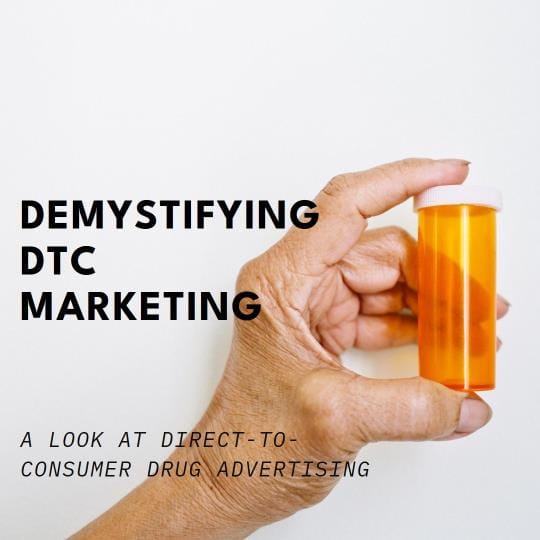Direct-to-consumer (DTC) drug marketing refers to the advertising of prescription drugs directly to the public, bypassing healthcare professionals (HCPs) as the initial point of contact. This marketing strategy aims to raise awareness about specific medications and potentially encourage patients to discuss them with their doctors.
However, DTC marketing in the pharmaceutical industry is a tightly regulated environment due to the potential risks of misinforming patients and influencing treatment decisions without proper medical guidance. Let’s delve deeper:
The Landscape of DTC Marketing
- Limited Reach: DTC marketing is only legal in a handful of countries, with the United States and New Zealand being the most prominent examples. In most countries, prescription drug advertising is restricted to HCPs.
- Regulations & Guidelines: Even in permitted countries, strict regulations govern DTC marketing. The FDA (Food and Drug Administration) in the US has specific guidelines outlining what can and cannot be advertised directly to consumers.
- Focus on Awareness: DTC marketing typically aims to raise awareness about a specific medical condition and the potential role a particular medication can play in treatment. It shouldn’t replace consulting with a doctor for diagnosis and treatment decisions.
Key Considerations for DTC Marketing:
- Transparency & Balance: DTC ads must be truthful, balanced, and present both the benefits and potential risks of a medication.
- Avoiding Misleading Claims: Overstating the effectiveness of a medication or downplaying side effects is strictly prohibited.
- Encouraging Consultation with HCPs: DTC ads should always encourage viewers to discuss the medication with their doctor to determine if it’s right for them.
Types of DTC Marketing:
- Television Commercials: Catchy TV ads are a common tactic, often featuring actors portraying people experiencing symptoms of a particular condition and then finding relief with the advertised medication. These ads must clearly communicate the condition and potential side effects.
- Print Advertisements: Print ads in magazines and newspapers can be another avenue for DTC marketing, adhering to the same principles of transparency and risk disclosure.
- Digital Marketing: The rise of digital media has opened new avenues for DTC marketing, with social media platforms being a potential channel, but with very strict regulations to avoid misleading claims. Informative websites targeted towards patients with specific conditions can also be a strategy, ensuring they don’t promote a specific medication but raise awareness about the condition and treatment options.
The Debate Around DTC Marketing:
DTC marketing is a controversial topic, with proponents and opponents offering valid arguments:
- Pros:
- Raises awareness about medical conditions and treatment options.
- Empowers patients to take a more active role in their healthcare.
- Increases competition in the pharmaceutical industry, potentially leading to lower drug prices.
- Cons:
- Can be misleading and oversimplify complex medical issues.
- May lead patients to pressure doctors for specific medications that might not be the best fit.
- Can exacerbate concerns about side effects without proper medical guidance.

The Future of DTC Marketing:
As the digital landscape evolves, DTC marketing will likely continue to adapt. Here are some potential trends:
- Focus on Digital Channels: Social media platforms might play a bigger role, but with even stricter regulations to ensure responsible advertising.
- Personalized Marketing: Utilizing data to personalize DTC messaging based on a patient’s demographics and health concerns (adhering to privacy regulations).
- Focus on Education: DTC marketing might evolve towards a more informative approach, educating patients about health conditions and treatment options without promoting specific medications.
Conclusion:
DTC marketing is a complex issue with both potential benefits and drawbacks. As a consumer, it’s crucial to be critical of DTC ads and always consult with your doctor before starting any new medication. If you’re involved in the pharmaceutical industry, remember to prioritize transparency, ethical practices, and patient well-being when considering DTC marketing strategies.



